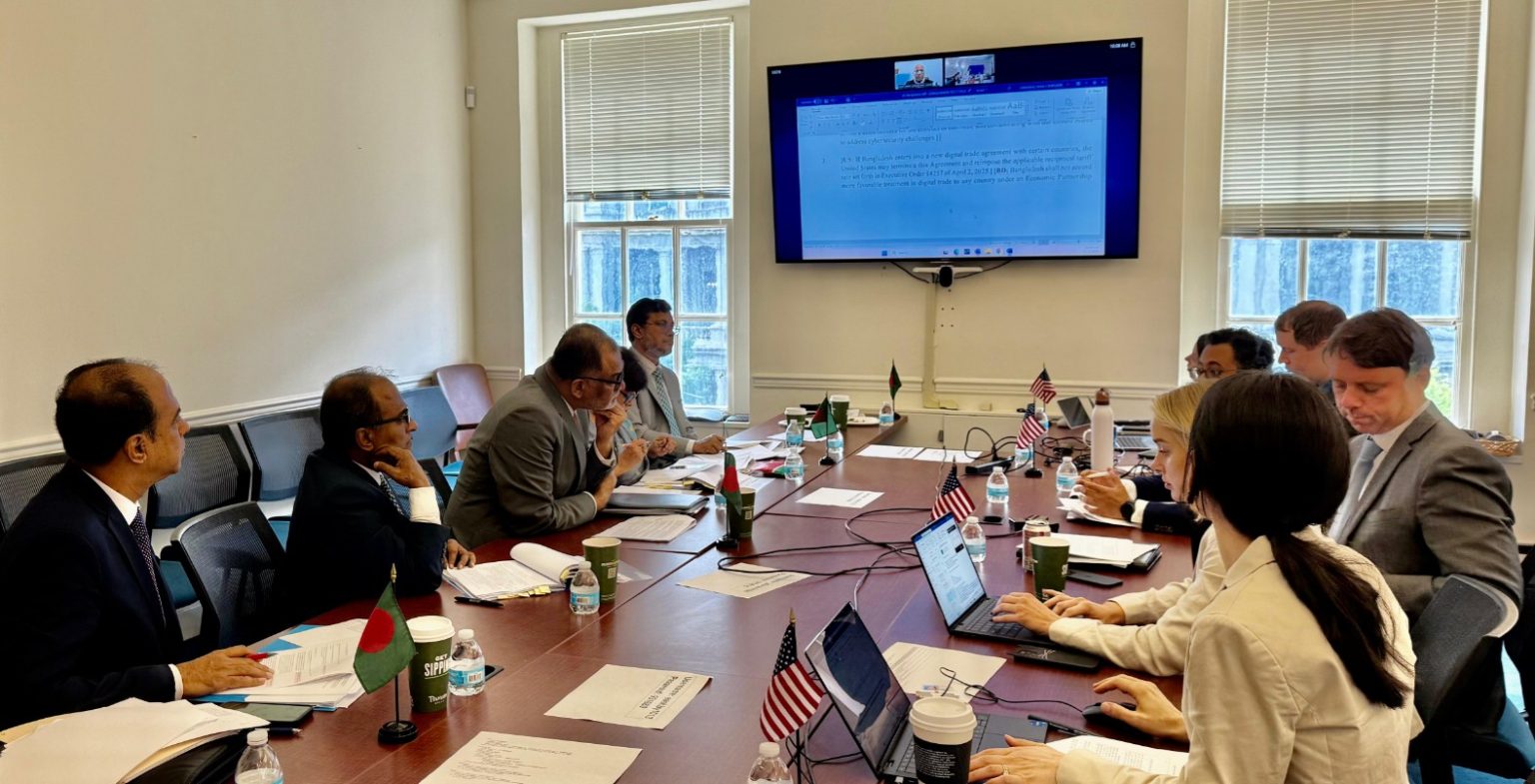The second round of tariff negotiations between Bangladesh and the United States concluded in Washington late Friday without a final agreement, but both sides have agreed to continue discussions — keeping diplomatic channels open amid growing concern within Bangladesh’s export sector.
A statement issued early Saturday morning by the Press Wing of the Chief Adviser confirmed that the scheduled three-day talks ended without a breakthrough on the proposed 35 percent tariff on Bangladeshi exports. However, both governments reached a “mutual understanding” to continue dialogue, either virtually or in person.
The proposed tariff, set to take effect on 1 August, remains the key point of contention. Bangladeshi officials have warned of far-reaching economic consequences, including widespread order cancellations, factory closures, and job losses — particularly in the readymade garments sector, which accounts for over 85 percent of Bangladesh’s $48 billion in annual exports.
“Discussions will continue through inter-ministerial coordination and a follow-up meeting will be scheduled soon,” the statement noted, adding that the process remains under active review.
Commerce Adviser Sheikh Bashir Uddin led the Bangladesh delegation in Washington, accompanied by Commerce Secretary Mahbubur Rahman and Additional Secretary Dr Nazneen Kauser Chowdhury. National Security Adviser Dr Khalilur Rahman and Chief Adviser’s Special Assistant on ICT Faiz Ahmed Tayeb joined the discussions virtually from Dhaka.
On Thursday, Sheikh Bashir held a private meeting with US Trade Representative Ambassador Jamieson Greer. According to the Press Wing, the talks took place in a “sincere and constructive atmosphere,” focusing on tariff frameworks, strategic market access, and strengthening bilateral trade ties.
Sheikh Bashir called on the US to ensure a fair tariff regime, pointing to Dhaka’s recent moves to increase imports from the US — including LNG, wheat, cotton, and Boeing aircraft — as a show of goodwill. He also highlighted Bangladesh’s request for tariff parity with Vietnam, which recently secured a reduced 20 percent tariff rate from Washington.
As previously reported by TIMES of Bangladesh, industry groups such as the Bangladesh Garment Manufacturers and Exporters Association (BGMEA) have sounded the alarm over the looming tariff, warning that the additional duties — estimated to exceed $3 billion annually — could erode competitiveness in the US market.
“This is no longer just about percentages — it’s about national economic security,” a BGMEA official told TIMES, urging the Chief Adviser’s Office to step up diplomatic efforts.
The Bangladesh Embassy in Washington DC coordinated the discussions, and a date for the next round of talks is expected to be announced soon.


